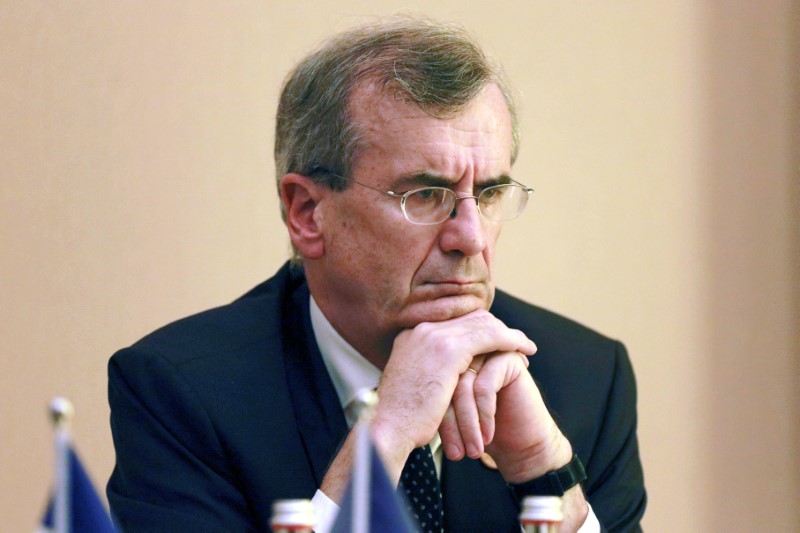PARIS (Reuters) - The European Central Bank's monetary policy is providing a "yardstick of predictability" as European countries go through a new cycle of elections next year, ECB policymaker Francois Villeroy de Galhau told the Wall Street Journal.
"For next year we have an electoral cycle throughout Europe, so we say clearly: in this uncertain environment, economic actors know where monetary policy will be, which is a very strong advantage for them and the economic recovery in Europe," Villeroy was quoted as saying.
"Clearly in a very uncertain world, European monetary policy is a yardstick of predictability and stability and this is very important also for supporting economic activity."
The central bank said last week its asset buying scheme would be extended to the end of 2017 from the original end date of March 31 but that it would trim its monthly purchases to 60 billion euros a month from 80 billion from April.
With still no sign of a sustained rebound in underlying inflation and heightened political risk from the looming elections in four of the euro zone's five biggest economies, including France and Germany, the ECB promised to keep borrowing costs depressed longer than predicted, even reserving the right to raise back purchases if the outlook sours.
"It's not black and white, we never said it's zero or 80 billion. Clearly we will do at least 60 billion," Villeroy said.
Villeroy, who is France's central bank governor, also said in the interview that he was "more confident than some weeks ago" about talks among the Basel Committee of banking supervisors.
"We have made good progress in Santiago in the last meeting of the Basel Committee towards a global agreement," he said.
Global banking regulators have softened proposed new capital rules in a bid to ease European concerns that extra demands would cause banks to crimp their lending, three sources have told Reuters.

The Basel Committee of banking supervisors from nearly 30 countries met in Chile last month in an effort to complete new bank capital rules used by lenders in the world's major financial centres. It is now trying to pin down the details.